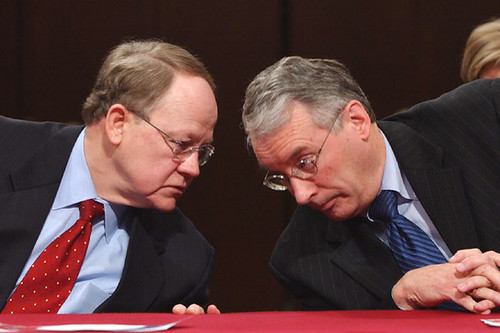WASHINGTON — At the nation’s top spy agency, the ghosts of Iraq are never far away.
One C.I.A. analyst who had helped develop some of the intelligence about Saddam Hussein’s supposed weapons of mass destruction had a breakdown months after the Iraq war began; he had participated in the post-invasion hunt there that found the weapons did not exist. When he eventually was given a new assignment assessing Iran’s nuclear program, he confided a fear to colleagues: that the intelligence community might get it wrong again.
“He felt enormous guilt that he had gotten us into the war,” said one former official who worked with the analyst. “He was afraid it was going to be déjà vu all over again.”
Today, analysts and others at the C.I.A. who are struggling to understand the nuclear ambitions of Iran are keenly aware that the agency’s credibility is again on the line, amid threats of new military interventions. The intelligence debacle on Iraq has deeply influenced the way they do their work, with new safeguards intended to force analysts to be more skeptical in evaluating evidence and more cautious in drawing conclusions.
Former intelligence officials say that this shows appropriate vigilance in dealing with often murky information, while some detractors argue that the agency is not just careful but also overly skittish on Iran, reluctant to be blamed for any findings that might lead the United States to bloodshed.
“For a lot of people in the intelligence community, there is a feeling that they don’t want to repeat the same mistake,” said Greg Thielmann, a former State Department intelligence analyst who resigned to protest what he considered the Bush administration’s politicization of the prewar Iraq intelligence. “The intelligence community as a whole has better practices now partly because of the scar tissue they still have from Iraq,” added Mr. Thielmann, now a senior fellow at the Arms Control Association in Washington.
Paul Pillar, a former senior C.I.A. analyst on the Middle East, says he believes that analysts are guided by the facts in making their assessments about Iran, but that they almost certainly have Iraq weighing on them. More
